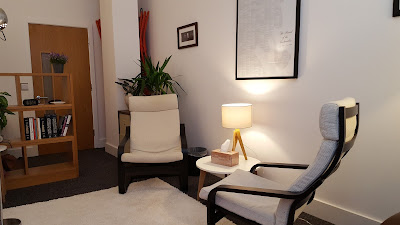I received an email from a new client this time last year, a woman I will call Sarah. The subject line simply read Help needed. The message was not much more enlightening and I read it thinking it felt as though she was holding much back. I like to confirm details by email but for real contact I always suggest an initial session. An opportunity for us both to get to know one another. Therapy might be right for you but the therapist might not. Best to meet and for me to be confident that I can offer real and meaningful support.
I emailed back and suggested that we meet for a first session. Her reply both detailed and vague. She talked about how anxiety was ruining her life, dominating her relationships and her contact with the world. That the Christmas period had seen this get worse and she feared what the New Year might bring. She wrote with a rare clarity of self-awareness but underlying all of this detail was a plea for help; an end to the torment of being always alert, always anxious.
We agreed a day and time to meet. I sat in my therapy room waiting and re-reading her email. Just before our agreed time my mobile chimed. Sarah had been held up and, apologising profusely, told me she would not be coming. It happens, not often, but occasionally. Over the next two weeks we re-arranged sessions and Sarah gave new reasons for her being unable to turn up.
I wasn’t irritated but curious. Sarah and I were never to meet. We agreed two more sessions but they never happened. We ended the contact with her letting me know ‘life was too busy’ and she would contact me again in the future. She didn’t. Perhaps the New Year opened with an easing of her anxiety or maybe she was simply not ready.
I was left reminded that therapy can be a big step. Support for mental wellbeing are such easy words to write and hard work to reach out and accept. At this time of year the need for contact, to bring positive change to our lives, or maybe just to be heard, brings new clients to my practice. Whatever the reason I am glad that self-care is finally being seen as the norm and not an indulgence.
This article first appeared in Gallery Magazine
















